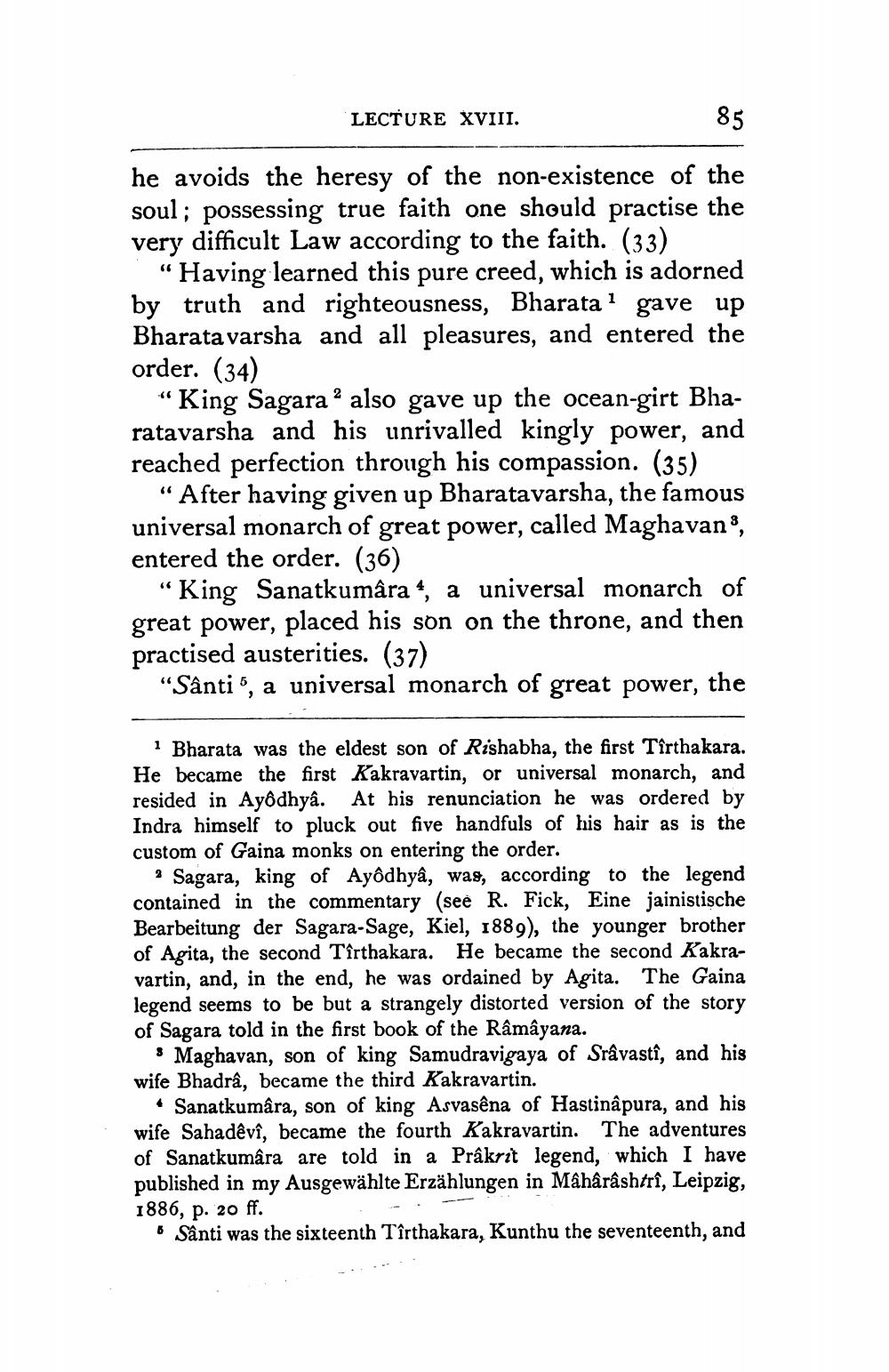________________
LECTURE XVIII.
he avoids the heresy of the non-existence of the soul; possessing true faith one should practise the very difficult Law according to the faith. (33)
“Having learned this pure creed, which is adorned by truth and righteousness, Bharata gave up Bharata varsha and all pleasures, and entered the order. (34)
“King Sagara2 also gave up the ocean-girt Bharatavarsha and his unrivalled kingly power, and reached perfection through his compassion. (35)
“After having given up Bharatavarsha, the famous universal monarch of great power, called Maghavano, entered the order. (36)
“King Sanatkumâra“, a universal monarch of great power, placed his son on the throne, and then practised austerities. (37)
"Sânti", a universal monarch of great power, the
Bharata was the eldest son of Rishabha, the first Tîrthakara. He became the first Kakravartin, or universal monarch, and resided in Ayodhyâ. At his renunciation he was ordered by Indra himself to pluck out five handfuls of his hair as is the custom of Gaina monks on entering the order.
Sagara, king of Ayodhyâ, was, according to the legend contained in the commentary (see R. Fick, Eine jainistische Bearbeitung der Sagara-Sage, Kiel, 1889), the younger brother of Agita, the second Tîrthakara. He became the second Kakravartin, and, in the end, he was ordained by Agita. The Gaina legend seems to be but a strangely distorted version of the story of Sagara told in the first book of the Ramayana.
Maghavan, son of king Samudravigaya of Srâvastî, and his wife Bhadrâ, became the third Kakravartin.
• Sanatkumâra, son of king Asvasêna of Hastinapura, and his wife Sahadêvî, became the fourth Kakravartin. The adventures of Sanatkumâra are told in a Prâkrit legend, which I have published in my Ausgewählte Erzählungen in Mâhârâshtrî, Leipzig, 1886, p. 20 ff.
0 Sảnti was the sixteenth Tîrthakara, Kunthu the seventeenth, and




